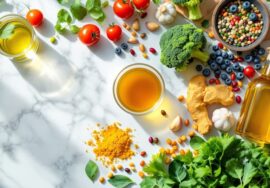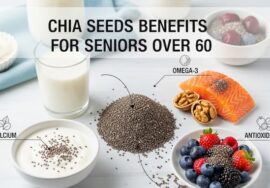Explore which fruits have the highest vitamin C concentration, including lesser-known sources. Learn how to boost your immunity with these natural choices.
Table of Contents
- Why Vitamin C-Rich Fruits Are Essential in Daily Life
- Top Fruits with Highest Vitamin C Levels per 100g
- Kakadu Plum (Terminalia ferdinandiana)
- Camu Camu Berry
- Acerola Cherry (Barbados cherry)
- Guava (Psidium guajava)
- More Fruits High in Vitamin C You Shouldn’t Ignore
- Why Natural Vitamin C Sources Beat Supplements
- How to Preserve Vitamin C in Fruits
- Daily Vitamin C Intake: Are You Getting Enough?
- Final Thoughts: Choose the Right Fruit for Better Immunity
- Frequently Asked Questions About Vitamin C in Fruits
- Pro Tip for Readers
Why Vitamin C-Rich Fruits Are Essential in Daily Life
When it comes to supporting your immune system, promoting collagen production, and keeping your energy up, vitamin C is king. But not all fruits are created equal when it comes to their vitamin C content. In fact, many lesser-known fruits beat the usual suspects like oranges and lemons in this department.
If you’re looking for real data on vitamin C content in fruits per 100g, or want to know which fruit has most vitamin C naturally, this article is your go-to source.
Let’s dig deep into the top choices you probably haven’t added to your shopping list—yet.
Top Fruits with Highest Vitamin C Levels per 100g
1. Kakadu Plum (Terminalia ferdinandiana)
Vitamin C content: 2,907 mg per 100g
Native to Australia but now available in some specialty U.S. health stores, the Kakadu plum blows away all competition. If you’re looking for a natural high vitamin C fruit, this is it.
2. Camu Camu Berry
Vitamin C content: 2,145 mg per 100g
Popular in powders and supplements, this Amazon rainforest berry is extremely potent. If you’re wondering what the strongest natural source of vitamin c is, Camu Camu ranks near the top.
3. Acerola Cherry (Barbados cherry)
Vitamin C content: 1,677 mg per 100g
These small red fruits pack a huge punch. Many people search for acerola cherry vitamin c comparison because they outperform oranges by a mile.
4. Guava (Psidium guajava)
Vitamin C content: 228 mg per 100g
A tropical favorite that’s finally gaining popularity in U.S. grocery stores. Guava is not just delicious—it’s one of the best fruits high in vitamin c and fiber.
More Fruits High in Vitamin C You Shouldn’t Ignore
| Fruit | Vitamin C (mg/100g) | Extra Benefit |
|---|---|---|
| Kiwi | 92.7 | Skin rejuvenation |
| Lychee | 71.5 | Gut-friendly fruit |
| Papaya | 60.9 | Great for digestion |
| Strawberries | 58.8 | Low sugar fruit |
| Pineapple | 47.8 | Enzyme-rich |
These fruits are easily accessible in most U.S. supermarkets and can be added to smoothies, salads, or eaten as snacks.
Why Natural Vitamin C Sources Beat Supplements
Many Americans reach for vitamin C tablets without realizing that fruit-based vitamin C sources have better bioavailability. Whole fruits also contain flavonoids, fiber, and other nutrients that help your body absorb and use the vitamin C more efficiently.
How to Preserve Vitamin C in Fruits
Vitamin C is water-soluble and heat-sensitive. Here’s how to get the most out of your fruits:
- Eat them raw when possible.
- Store in cool, dry conditions.
- Avoid prolonged cooking or microwaving.
Daily Vitamin C Intake: Are You Getting Enough?
According to U.S. dietary guidelines, adults need:
- Women: 75 mg/day
- Men: 90 mg/day
- Smokers: Add +35 mg/day
Eating just one guava or a cup of strawberries can get you over the threshold naturally.
Final Thoughts: Choose the Right Fruit for Better Immunity
Next time you’re at the store, think beyond oranges. Whether it’s the tropical guava or the Amazonian camu camu, adding high-vitamin C fruits to your diet can elevate your health in ways supplements can’t.
Small changes lead to big benefits.
🤔 Frequently Asked Questions About Vitamin C in Fruits
Q1. What fruit has the most vitamin C per bite?
Surprisingly, the acerola cherry wins this title. Though tiny, it delivers an impressive amount of vitamin C in just a few bites. If you’re looking for a compact fruit with powerful vitamin C, acerola should be on your radar.
Q2. Is guava better than orange for vitamin C?
Yes, guava contains more vitamin C per 100g than oranges. While oranges offer about 53 mg, guava delivers around 228 mg. Plus, guava brings extra fiber and a lower glycemic index.
Q3. What’s the best fruit for daily vitamin C needs?
A single kiwi or half a cup of papaya can help most adults meet their daily vitamin C needs. These fruits are not only potent but also easy to add to your breakfast or snack.
Q4. Are frozen fruits still high in vitamin C?
Yes, but vitamin C levels can drop slightly during freezing and storage. To retain the most nutrients, choose flash-frozen fruits and use them within a few months.
Q5. Does dried fruit still contain vitamin C?
Most dried fruits lose a significant amount of vitamin C during the drying process because it’s a heat-sensitive vitamin. If vitamin C is your goal, stick to fresh or frozen options.
Q6. Can I get too much vitamin C from fruit?
It’s very unlikely. Your body flushes out excess vitamin C through urine. Still, eating a balanced variety of fruits is better than overloading on just one type.
Q7. Which fruit juice is highest in vitamin C naturally?
Guava juice and acerola cherry juice top the list. Most people assume orange juice is best, but these tropical juices far exceed it in nutrient density.
Q8. How does vitamin C help your immune system naturally?
Vitamin C supports the production of white blood cells, acts as a natural antioxidant, and reduces inflammation. Eating fruits high in vitamin C can help your body stay strong during flu season.
Q9. What fruit is best for vitamin C and skin health?
Kiwi and papaya are excellent for skin health. They’re rich not only in vitamin C but also in enzymes and antioxidants that help reduce wrinkles and boost collagen.
Q10. Do cooking and heating destroy vitamin C in fruits?
Yes, high heat breaks down vitamin C quickly. To preserve its benefits, eat fruits raw or lightly chilled. If you cook them, consider steaming briefly instead of boiling.
📌 Pro Tip for Readers
Save this list and start rotating these fruits into your weekly routine. Your immune system, skin, and overall vitality will thank you. 🍓🍍🥝








